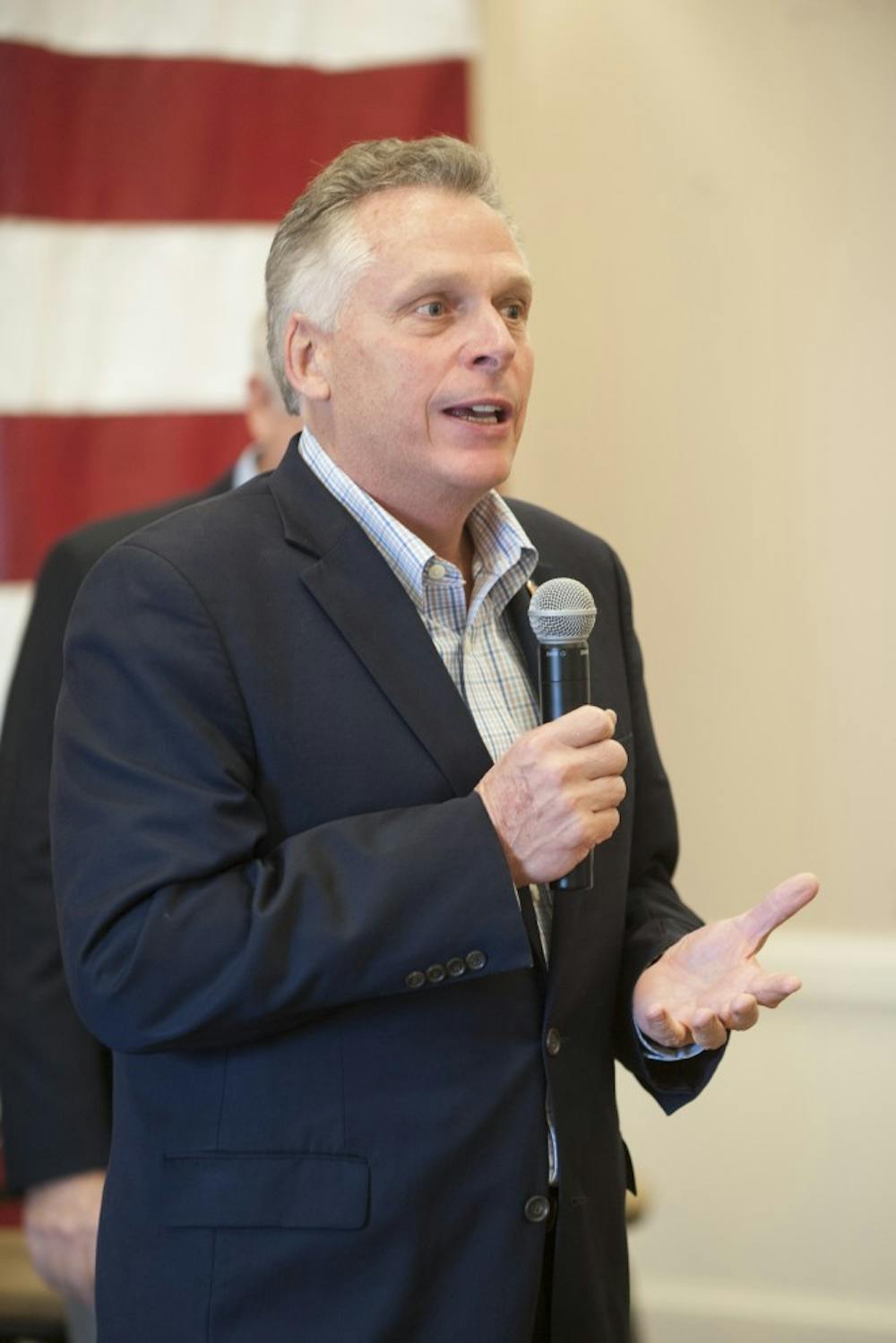Virginia Governor Terry McAuliffe signed a bill amending the state code relating to sex offenders who are prohibited from being within a certain proximity to children on March 16. The law will go into effect July 1.
Under the current Code of Virginia, offenders convicted of certain crimes are prohibited from loitering or residing within 100 feet of a school, childcare program, playground, athletic field or facility or gymnasium. They are also forbidden from working or volunteering at a school or daycare.
Currently, people who have committed a sex offense must register within three days of establishing a residence in Virginia. The bill expands the list of qualifying crimes to include offenses under the laws of other states or countries that are similar to qualifying crimes in Virginia.
State Senator Creigh Deeds (D-Bath) said the bill stemmed from a request made by the Virginia State Police in the fall of 2016. Deeds supported a similar bill in the Senate, where it was approved by the Committee for Courts of Justice, but was defeated by the Finance Committee, where it was referred to.
Deeds said the Finance Committee likely passed on the bill due to the Woodrum Amendment, which requires any legislation that could increase the prison population in the following six years to be accompanied by an appropriation that would cover the yearly costs of additional inmates.
“There’s always some jousting between the House and Senate, because any bill that potentially has a criminal penalty, you have to put money in the budget to pay for it,” Deeds said. “It’s easy to be tough on crime, but you have to recognize that it has a cost.”
The bill was introduced by Delegate Dickie Bell (R-Staunton) in the House of Delegates in December 2016. After the House agreed to fund the bill, both the House and Senate approved the bill in March.
Bell did not respond to request for comment.
While he voted in favor of the finalized bill, Delegate Sam Rasoul (D-Roanoke) was the only delegate to vote against the bill before amendments were added.
Rasoul said he was concerned the language of the bill would result in people currently living within that proximity of a school or daycare to move or be declared a felon. The amendments state the law only applies to residences established after July 1.
“Because it’s such a touchy subject, sometimes we’re not as objective as we tend to assume,” Rasoul said. “I thought it was unfair for people who already have a residence, who have been there for many, many years, for that to apply to them. Many legislators in the end, almost all of us agreed eventually that the bill should change a little bit.”
Deeds also said this amendment is one example of the bipartisanship of the bill.
“We tried to work with it to make sure it was fair,” Deeds said.
Deeds said bipartisan approval for the sex offender registry and the request from the State Police also ensured the bill was a bipartisan effort.
“It wasn’t really something that either side championed as a partisan issue,” Deeds said. “This wasn’t an idea that was generated from some sort of think tank for either party. It was a request from the State Police, and it was sponsored by a Democrat in the Senate and a Republican in the House.”







